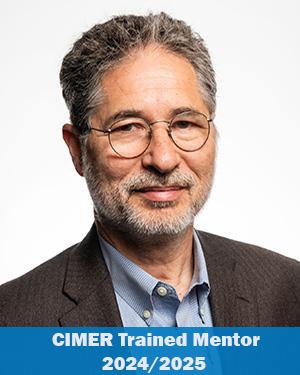Research News

A multidisciplinary team of Cleveland Clinic researchers have gained new insight into common genetic variants associated with atrial fibrillation (AF). Previous genome-wide association studies (GWAS) revealed 23 chromosomal regions (loci) connected with AF risk. This study narrowed the focus to identify the specific genes and genetic variations that are associated with 12 of these loci, which can alter proper function of the left atrium, the top left chamber of the heart.
AF is the most common form of arrhythmia, or irregular heartbeat. It impairs heart function and increases the risk for serious health problems, including stroke, and death. It is widely accepted that AF has a strong heritable component, although to date there has been little understanding about how certain common genetic variants increase disease risk.
In search of the missing link between the GWAS-identified loci and their related AF genes, the research team collected and analyzed left atrial appendage (LAA) tissue (a small sac in the muscle wall of the top left chamber of the heart) from 265 patients who underwent elective cardiac surgery to treat AF, valve disease or other cardiac disorders.
They compared the association of common genetic variants, called single-nucleotide polymorphisms (SNPs), and LAA gene expression. A SNP is a small change to the building blocks of DNA that sometimes-but not always-affects gene expression or function. The researchers used RNA sequencing technology to characterize gene expression profiles for more than 24,000 protein coding and noncoding RNAs that are expressed in LAA tissue. Combining this gene expression data with the SNP data, they looked for associations between those that occurred nearby one another, paying close attention to the 23 GWAS-identified AF-associated SNPs.
Analyses revealed that 12 of the AF-associated SNPs were associated with the LAA expression of a nearby gene (these SNP-gene pairs are called cis-expression quantitative trait loci or cis-eQTLs). It is suspected that the cis-eQTL genes may be responsible for the association with AF, even if that gene is not the closest gene to the GWAS SNP.
Looking genome-wide, the researchers discovered that common SNPs were significantly associated with the expression of more than 16,000 local genes in LAA tissue. The researchers catalogued the LAA cis-eQTLs and created a publically available, searchable database, which will help facilitate and fast-track future studies, not only related to AF, but also to other cardiovascular traits and diseases. Additional research will be important to further investigate how the cis-eQTL SNPs regulate gene expression and how the changes in specific gene expression increase a patient's risk for developing AF, presumably by altering atrial cell structure and/or function.
The researchers believe these findings will have important implications for developing new AF drugs that target these genetic variants and cellular processes. "While several tests can diagnose AF after disease onset-including an EKG, stress test and echocardiography-identification of these genetic variants may open the door to a genetic panel that can assess patient risk for AF and inform tailored prevention and treatment therapies," said Mina Chung, MD, practicing cardiologist and one of the lead authors on the study.
Jonathan Smith, PhD, Lerner Research Institute Department of Cellular and Molecular Medicine; Mina Chung, MD, Cleveland Clinic Department of Cardiovascular Medicine; and David Van Wagoner, PhD, Lerner Research Institute Department of Molecular Cardiology, led the study. Dr. Smith holds the Geoffrey Gund Endowed Chair for Cardiovascular Research.
Jeffrey Hsu, PhD, is first author on the study, which was published in Circulation: Genomic and Precision Medicine and supported by the National Heart, Lung, and Blood Institute (NIH); National Center for Advancing Translational Sciences (NIH); National Institute of General Medical Sciences (NIH); Cleveland Clinic Department of Cardiovascular Medicine philanthropy research funds; and the Tomsich Atrial Fibrillation Research Fund.
Featured Experts
News Category
Related News
Research areas
Want To Support Ground-Breaking Research at Cleveland Clinic?
Discover how you can help Cleveland Clinic save lives and continue to lead the transformation of healthcare.
Give to Cleveland Clinic
